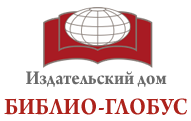Морозов Арсений Аркадьевич – младший научный сотрудник (Институт Экономики Карельского научного центра Российской Академии Наук)
Белая Раиса Васильевна – Старший научный сотрудник, кандидат экономических наук (Институт Экономики Карельского научного центра Российской Академии Наук)
Морозова Татьяна Васильевна – Вр.и.о. директора, доктор экономических наук (Институт Экономики Карельского научного центра Российской Академии Наук)
Социальные сети становятся полноценным инструментом в коммуникациях между различными субъектами межличностных и социальных отношений. Это обусловлено присутствием в сетях конкретной целевой аудитории и возможностью быстрого информационного обмена. Сегодня история возникновения и развития, перспективы функционирования социальных сетей постепенно превращаются в одно из актуальных направлений научных исследований, и вызывает интерес у представителей разных наук: от философов, социологов, экономистов, до специалистов в сфере ИКТ. В статье приведен обзор исследований динамики сетевых сообществ в России и ее регионах. Представлен анализ практик внедрения и продвижения ИКТ в различных сферах жизнедеятельности граждан. Приведена статистическая оценка активности пользователей рунета с использованием межрегиональных сопоставлений на примере СЗФО и Республики Карелия. Сделаны выводы о проблемах и роли сетевых сообществ в инновационном социально-экономическом развитии в условиях цифрового неравенства регионов. Информационными источниками статьи стали материалы ФОМ, ИРИО, результаты исследований российских и зарубежных ученых и аналитиков, интернет-площадки.
Tel : +7 495 648 6241
Fax : +7 495 648 6241
E-mail : info@idbg.ru
Address : 101000, Москва. ул. Мясницкая, д. 13, стр. 2
Сейчас у нас проходит акция - издание научной монографии стоит всего 15 т.р.
Подробнее